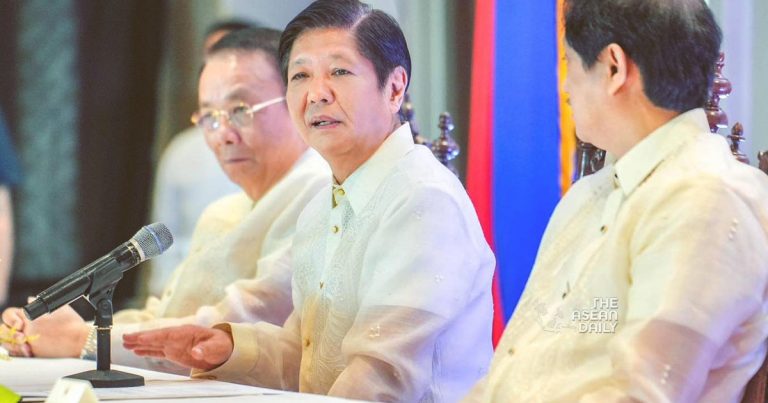18-7-2023 (MANILA) President Ferdinand “Bongbong” Marcos Jr. has signed the Maharlika Investment Fund into law, disregarding widespread public opposition to the measure. The newly established sovereign wealth fund, the first of its kind in the country, will serve as a repository for taxpayer funds to be invested in various instruments to support priority programs.
In a last-minute correction, ranking senators addressed a redundant provision of the bill over Viber, leading to a delay in its transmission to the Malacañang for the president’s approval. The enrolled bill was received by the Office of the President in early July.
It was in 2022 that Marcos himself revealed his personal involvement in crafting the proposal for a sovereign wealth fund. The swift passage of the MIF bill in Congress led to its enactment as Republic Act 11954.
Opposition to the investment fund has been robust, with business groups, academics, economists, opposition lawmakers, and civil society raising concerns. The use of state pension funds as seed money and the potential diversion of taxpayers’ funds that could otherwise be directly allocated to projects are among the key issues flagged by critics.
In response to these concerns, the economic managers of the Marcos administration, led by Finance Secretary Benjamin Diokno, conducted press briefings and roadshows to garner support from the investing public. They emphasized that the establishment of the sovereign wealth fund would enable the Philippines to invest in its future, as returns from investments could potentially finance socioeconomic and infrastructure projects.
During the signing of the bill, President Marcos hailed the MIF as a “bold step towards our country’s economic transformation” in the post-pandemic era. He emphasized that the fund would be managed based on financial, rather than political, decisions, stating, “The fund will fail if we do not make money on the fund. It’s that simple. But there are so many opportunities we cannot allow to slip by, and that is why we are putting (it) up.”
The final version of the Maharlika Investment Fund bill incorporated an eleventh-hour correction regarding the prescriptive period. Senate President Juan Miguel Zubiri and House Speaker Martin Romualdez approved a ten-year period for crimes, merging two sections. The Makabayan bloc in the House criticized this correction for deviating from principles of transparency and accountability in the legislative process. Senate Secretary Renato Bantug Jr., however, clarified that the senators originally voted for a ten-year prescriptive period and followed proper legislative procedures.
Regarding funding sources, the Maharlika Investment Corp. will receive at least P75 billion in paid-up capital this year. The Land Bank of the Philippines and the Development Bank of the Philippines will contribute P50 billion and P25 billion, respectively. The national government will provide P50 billion from the Bangko Sentral ng Pilipinas’ dividends. For the first two years, the central bank will remit all its declared dividends to the fund, after which the dividends will be evenly split between the fund and the central bank’s capitalization. The Philippine Gaming Corp. will also contribute 10% of its share annually for five years.
The fund’s management structure underwent revisions during the legislative process. The final version reduced the board of directors from 15 to 9, with three directors from the private sector. President Marcos assured that the Maharlika would be run by finance professionals, and he proposed removing the Philippine president, the BSP governor, and the Department of Finance from the board to ensure independent and professional management.
However, the MIF has faced staunch criticism from economics professors at the University of the Philippines. In a strongly-worded paper released in June, they argued that the fund violates fundamental principles of economics and finance and poses significant risks to the economy and the public sector.
Political analyst Cleve Arguelles noted that the temporary delay in transmitting the MIF bill to the president may indicate lawmakers’ attempt to gauge public sentiment. Arguelles also highlighted that President Marcos invested significant political capital in pushing for the bill’s passage, linking it to his family’s legacy. The risky move could yield partisan and patronage benefits associated with handling a substantial amount of unaudited funds like the MIF.




